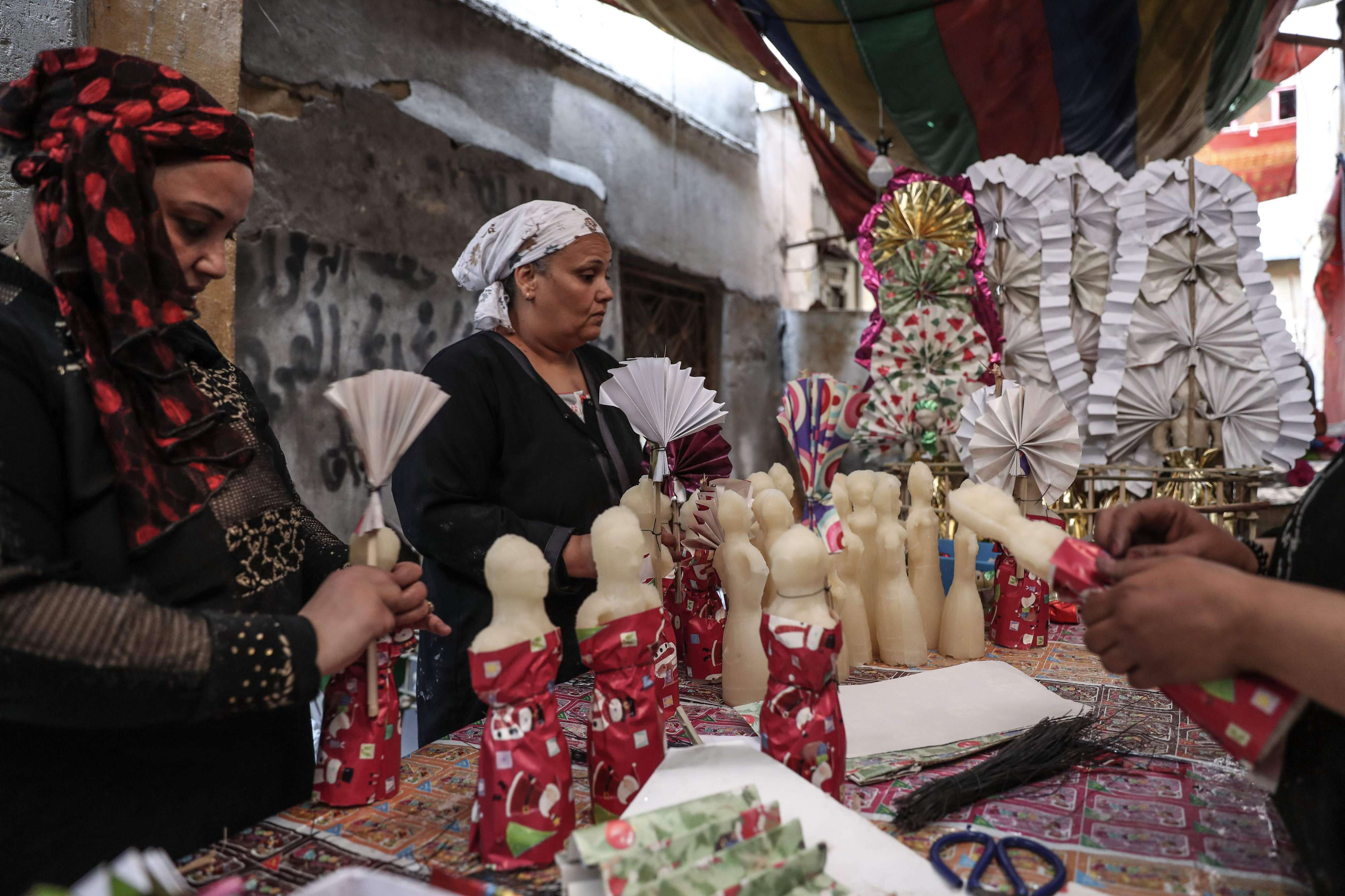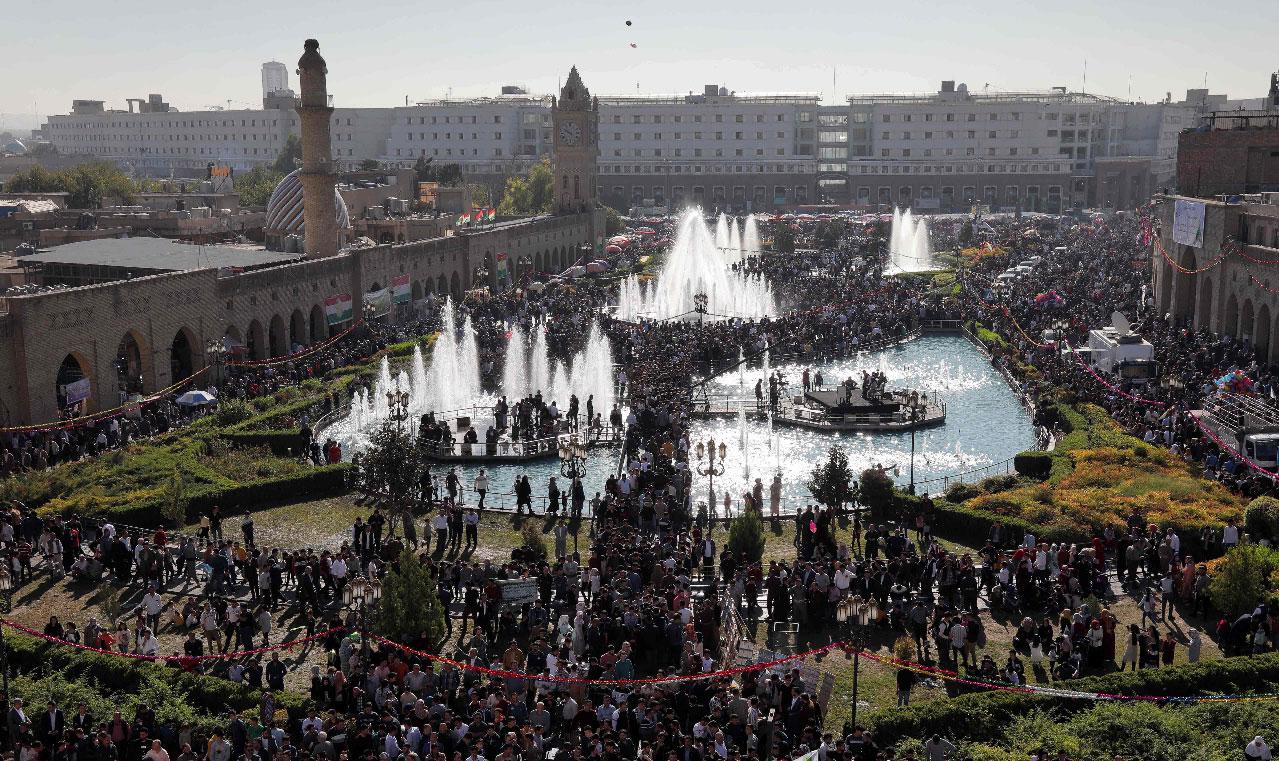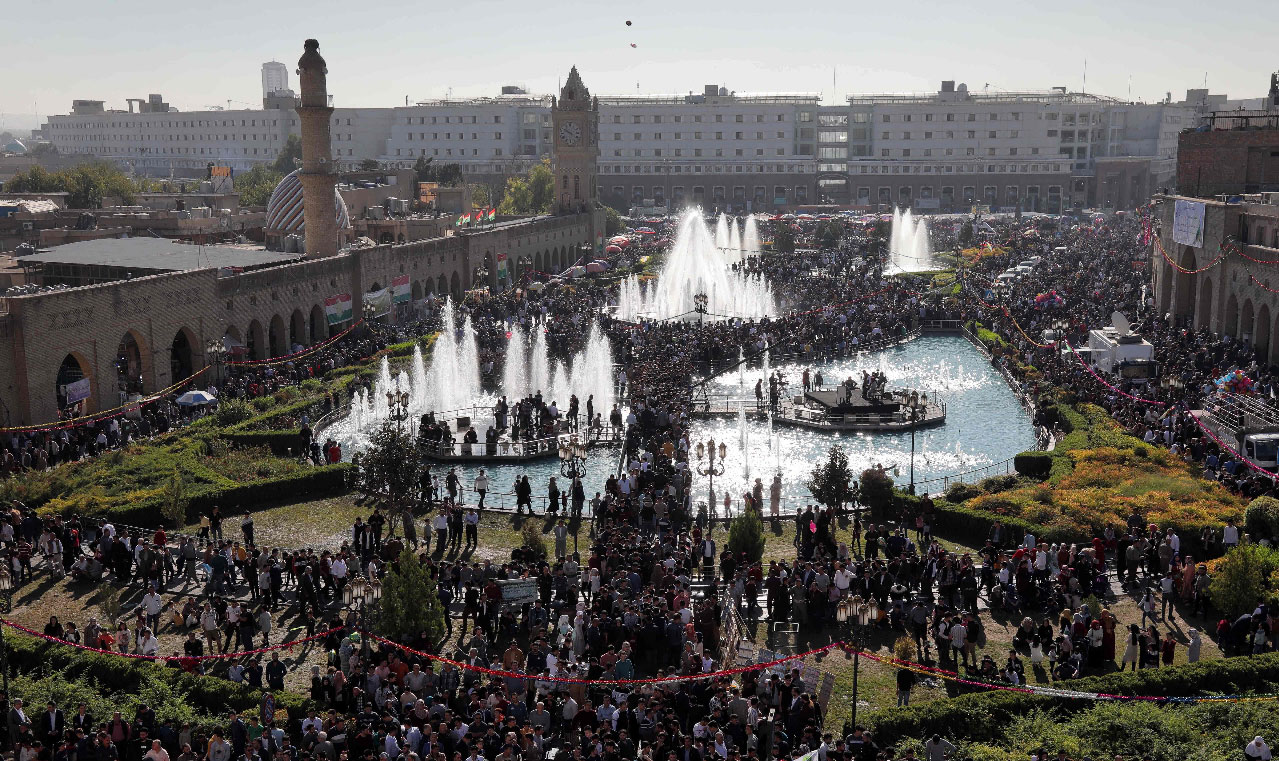
Mawlid holiday brings festivities to Muslim countries
TUNIS - Muslims throughout the world celebrated the Mawlid holiday even as protests continued in Algeria, Lebanon, Iraq and other locations.
The centuries-old holiday marking the birth of Mohammad, the Prophet of Islam, brought people together for sweets and festivities but economic hardship made it difficult for some families to celebrate with traditional treats.
In Tunisia, some families opted to prepare flour asida (porridge) with butter or olive oil and sugar, rather than the more expensive zgougou (pine cone) or hazelnuts variations that are traditional Mawlid treats.
Again this year, calls by ultraconservative Islamists to end the festivities because they are not prescribed by the Quran went largely ignored.
Mawlid is celebrated by all major denominations of Islam, including Sunnis who have ceremonies at shrines to honour the Prophet Mohammad’s legacy with festivities and songs.
Some of the largest ceremonies in Tunisia took place November 2-10 in the central city of Kairouan, drawing about 1 million visitors from around the country, said Ali Ben Saied, president of the Association of the Prophet’s Birthday.
Kairouan is an important religious destination in Tunisia, boasting one of the oldest mosques in the world.
In Egypt, where many live in poor conditions, sweet shops prepared the traditional "Mawlid bride," a figurine made of sugary paste that is dressed in paper skirts, sparkles and fabric flowers.

The dolls are traditionally offered by young men to their betrothed along with other sweets made of dried fruit, nuts and nougat.
In Lebanon, where anti-corruption demonstrations raged, mosques were decorated with lights and crescents to mark the holiday while people distributed sweets.
Cultural events and religious ceremonies, including Sufi nights, took place throughout Morocco. Fez, known as Morocco’s spiritual capital, drew thousands of visitors from around the world for the celebrations.
In war-hit Libya, Sufis dressed in traditional robes took part in processions across neighbourhoods, chanting hymns to the beat of drums and cymbals. Libyan children, eager to participate in the festivities, were given toys.
Sufi worshippers in Libya, wary of a rise of Salafists, resolved to preserve their traditions.
The centuries-old tradition of Sufism "is in vogue," said Slim Bacouche, a Sufi songwriter and psychophonist.
"Sufism is about a desire to return to the source. It's also a quest for the truth. It allows us, particularly through the Islamic faith, to attain a state of enjoyment in which we find inner peace, whether by means of dhikr (devotional parayer), tasbih (a repetitive praise of Allah), music or Quran recitals,” he said.
“Sufi confraternities provide us with an opportunity to share moments of truth together. Everyone enters henceforth a little spiritual cocoon. There is respect for others and less and less voyeurism because everyone has only a desire to find inner peace.”
Historians say Mawlid was first practised by the Fatimids, who introduced the celebration to the Maghreb in the early 12th century.
Mawlid is commemorated in Rabi I, the third month in the Islamic calendar, which is based on lunar cycles and is 11 days shorter than the Gregorian calendar. The 12th of Rabi I is the accepted date among most of the Sunni scholars while Shia scholars regard the 17th of Rabi I as the accepted date.
Mawlid, however, is especially important for Sufi Muslims in both Sunni and Shia traditions who adhere to a more mystical strain of the faith. Besides standard prayers, Sufis mark the holiday by singing hymns, chanting and performing dances.
“Sufis are Muslims who practise their faith but, contrary to other traditions or forms of Islam, they are inherently tolerant as they accept the other, regardless of differences or flaws. In fact, Sufis do not judge or maginalise others. Hence, any person, who follows the Sufi path, is a person who has chosen inner peace and peace with the rest of the world,” Bacouche said.
Iman Zayat is the Managing Editor of The Arab Weekly, where this article was originally published.







